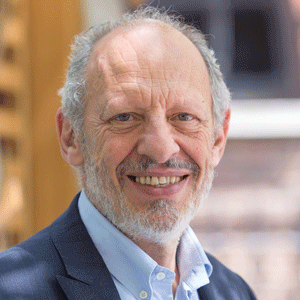The Nutrition and Cancer Research Journey: From Chemical-Physical Carcinogenesis to Metabolic Carcinogenesis
A growing body of scientific evidence has accumulated supporting the role in cancer aetiology of factors often labelled as “metabolic” that include diet, anthropometric characteristics, physical activity, metabolic syndrome components, and some aspects of sexual maturation and reproductive life. The need to investigate these complex lifestyle and metabolic factors justified the development of large prospective cohort studies. The European Prospective Investigation into Cancer (EPIC) was initiated in the mid-1990s, coordinated from IARC in collaboration with research centers in 10 European countries. It enrolled 521,000 participants, mostly aged 35-70. After 20 years of follow-up, EPIC has accrued over 80,000 incident cases of cancer, 26,000 cases of CHD and stroke, and 26,000 cases of type 2 diabetes. The EPIC database has become a shared research infrastructure used by hundreds of researchers in Europe and across the world.
EPIC largely contributed to the identification of the role of overweight and obesity in increasing cancer risk, particularly for the colon and rectum, gastric cardia, oesophagus (adenocarcinoma), breast (after menopause), endometrium, ovary, kidney, liver, gallbladder, pancreas and thyroid.
Sedentary lifestyle and lack of physical activity had been known for a long time to be related to higher risk of cardiovascular diseases and type 2 diabetes. Their possible link with human cancer was originally suggested by some case control studies on colorectal and breast cancers, however, substantial doubts surrounded these results, due to the scepticism on the validity of retrospective assessment of physical activity levels in cancer patients compared to controls. Cohort studies with measurement of physical activity conducted years before diagnosis provided strong and consistent evidence on the protective effect of physical activity on several cancers. These results have recently been corroborated by the results of mendelian randomization analyses showing that genetic variants predicting higher physical activity also predict higher risk of cancers of the colon, rectum and breast.
The mechanisms linking diet, obesity and sedentary lifestyle with cancer are not fully understood, however there are promising research lines including insulin sensitivity deregulation, triggering of inflammation processes, deregulation of various tissue growth factors and cell cycle.
Overall, diet, obesity and sedentary lifestyle have emerged as major worldwide causes of cancer, other chronic diseases as well as of premature death. This knowledge paves the way to new opportunities for primary and secondary cancer prevention.
Presented by:
Elio Riboli, M.D., M.P.H.

Professor in Cancer Epidemiology and Prevention, School of Public Health, Imperial College London, Professor of Public Health, Humanitas University, Mila
No slides availableNavigate the Site
2026 GoldLab Symposium
Save the date!
Please join on May 14-15, 2026Presenters In The News
Contact Info










